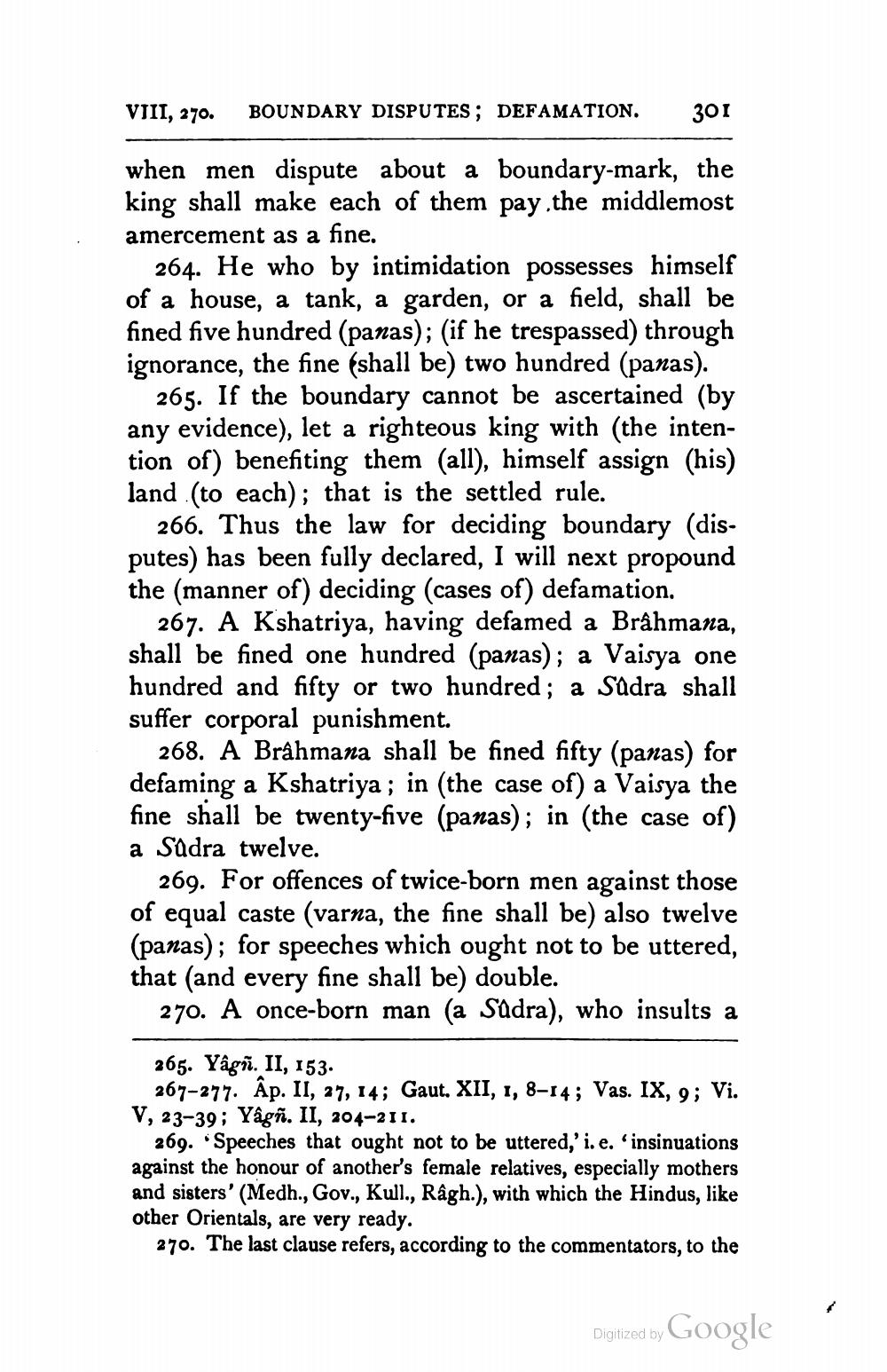________________
VIII, 270.
BOUNDARY DISPUTES; DEFAMATION.
301
when men dispute about a boundary-mark, the king shall make each of them pay the middlemost amercement as a fine.
264. He who by intimidation possesses himself of a house, a tank, a garden, or a field, shall be fined five hundred (panas); (if he trespassed) through ignorance, the fine (shall be) two hundred (panas).
265. If the boundary cannot be ascertained (by any evidence), let a righteous king with (the intention of) benefiting them (all), himself assign (his) land (to each); that is the settled rule.
266. Thus the law for deciding boundary (disputes) has been fully declared, I will next propound the (manner of) deciding (cases of) defamation.
267. A Kshatriya, having defamed a Brâhmana, shall be fined one hundred (panas); a Vaisya one hundred and fifty or two hundred; a Sudra shall suffer corporal punishment.
268. A Brâhmana shall be fined fifty (panas) for defaming a Kshatriya; in (the case of) a Vaisya the fine shall be twenty-five (panas); in (the case of) a Sadra twelve.
269. For offences of twice-born men against those of equal caste (varna, the fine shall be) also twelve (panas); for speeches which ought not to be uttered, that (and every fine shall be) double.
270. A once-born man (a Sudra), who insults a
265. Yâgí. II, 153.
267-277. Ap. II, 27, 14; Gaut. XII, 1, 8-14; Vas. IX, 9; Vi. V, 23-39; Yâgñ. II, 204-211.
269. Speeches that ought not to be uttered,' i.e. 'insinuations against the honour of another's female relatives, especially mothers and sisters' (Medh., Gov., Kull., Râgh.), with which the Hindus, like other Orientals, are very ready
270. The last clause refers, according to the commentators, to the
Digitized by Google




